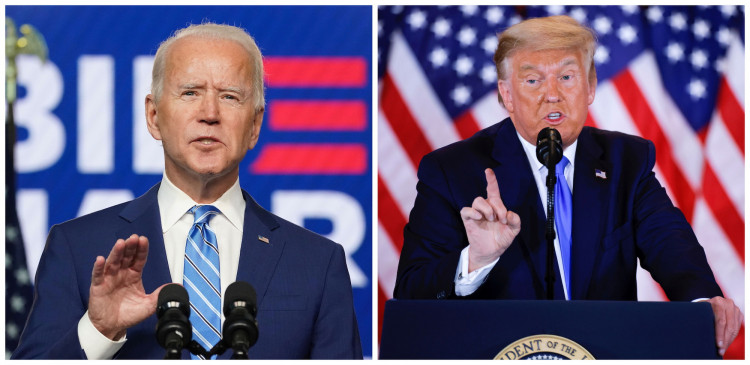As the political landscape readies itself for another election showdown, recent surveys conducted by The New York Times and Siena College offer a riveting narrative: Former President Donald Trump is outflanking President Joe Biden in the hearts and minds of voters across crucial battleground states. The data unveils a substantial advantage for Trump over Biden, particularly in states that were pivotal in the 2020 race.
In the Silver State of Nevada, Trump has garnered a notable 52% of support versus Biden's 41%. This double-digit gap marks a significant shift from the previous election where Biden emerged victorious albeit by a slim margin. Similar scenarios unfold in Georgia, Arizona, and Michigan, with Trump leading by margins ranging from five to six percentage points. These figures are especially poignant in Georgia, a state entangled in Trump's post-election maneuvers. Pennsylvania shows a closer contest, yet Trump still leads with a four-point margin. Biden, however, clings to a slender lead in Wisconsin.
This spectrum of state-by-state skirmishes reflects broader national undercurrents. Voter disenchantment with the Biden administration surfaces through tepid job approval ratings and stark concerns over the President's age and governance capacities. The economy, a lodestone issue for many, has voters leaning towards Trump's stewardship. Despite facing a litany of legal accusations - 91 criminal charges across four indictments to which he has pleaded not guilty - Trump's support among Republicans has demonstrated resilience.
The survey's demographics suggest a dramatic pivot in voter sentiment, with an unprecedented 22% of Black voters in the six states rallying behind Trump, a deviation from past voting patterns. Meanwhile, amid speculation about his effectiveness due to his advanced age, an astonishing 71% of respondents have expressed apprehensions regarding Biden's capacity to lead, with over half of his own supporters echoing this sentiment.
The gravity of these numbers is not lost on the Biden campaign. Kevin Munoz, a Biden campaign spokesman, emphasized resilience and strategy in response to the polls: "Predictions more than a year out tend to look a little different a year later." Munoz projected confidence in their voter mobilization, juxtaposing the administration's "winning, popular agenda" with what he termed as "MAGA Republicans' unpopular extremism."
Biden's campaign machinery is diligently engineering a response, reaching into their coalition in anticipation of a 2024 victory that hinges on razor-thin margins. According to internal polls, Biden's advisers see him as the Democrat's prime contender despite public surveys suggesting a somber mood amongst the electorate.
As the political tides churn, the sentiment shared by Pennsylvania's Spencer Weiss resonates with a segment of the voting populace: "The world is falling apart under Biden," with an added longing for what he perceives as Trump's sharper acumen.
With these findings as a backdrop, the political narrative as we approach the general election becomes one of a nation at an ideological and generational crossroads. Whether these early indicators will crystallize into electoral outcomes remains the subject of intense speculation and fervent campaign efforts on both sides of the aisle.






